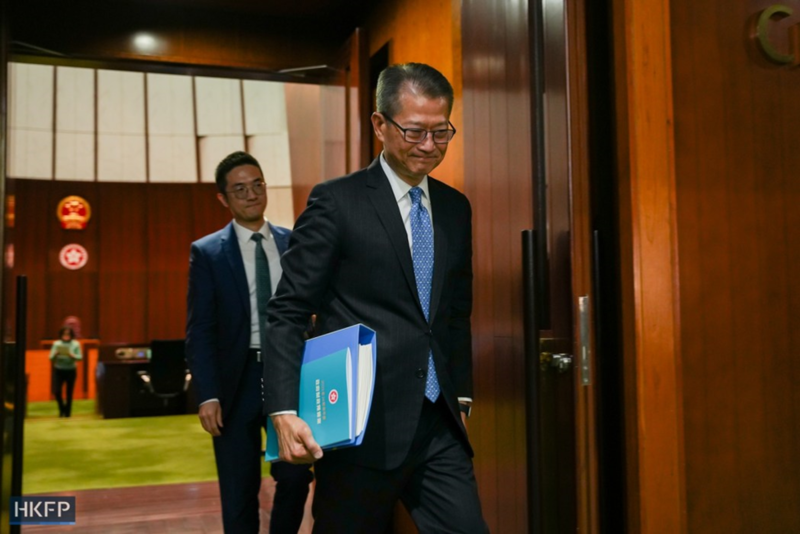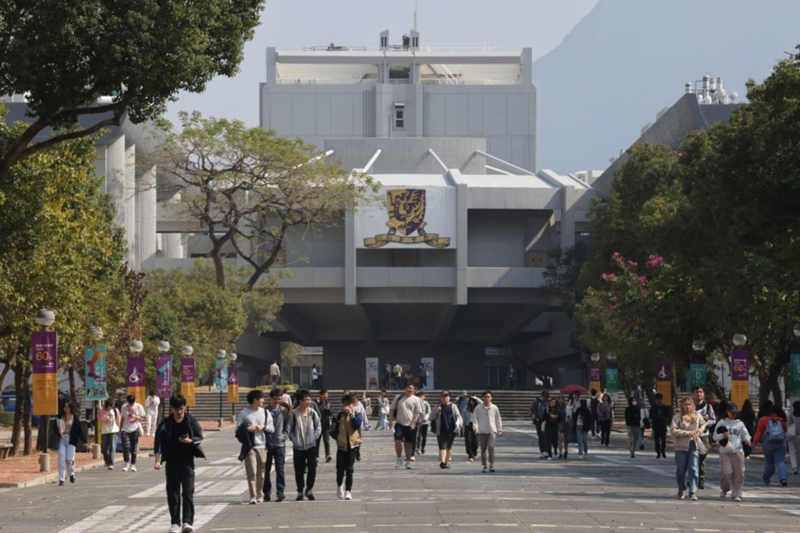Hong Kong’s Bold Economic Shift: Balancing Fiscal Prudence and Innovation
Input
Modified
Overseeing the Fiscal Deficit and Revenue Generation Investing in Artificial Intelligence and Future Industries Higher Education: Maintaining Excellence Despite Budget Cuts

Overseeing the Fiscal Deficit and Revenue Generation
Hong Kong’s 2025 budget balances fiscal discipline with strategic investments, cutting public spending while channeling funds into AI development and higher education to drive long-term growth. By diversifying revenue sources and fostering innovation, the city aims to strengthen economic resilience and maintain global competitiveness.
Paul Chan, Hong Kong's Financial Secretary, presented the annual budget on February 26, 2025. The budget outlined a strategic approach to address the city's increasing fiscal deficit and promote future economic development. The budget is primarily concerned with the reduction of public expenditure, the investment in artificial intelligence (AI), and the enhancement of higher education, reflecting a delicate equilibrium between fiscal prudence and forward-thinking innovation.
The projected fiscal deficit in Hong Kong by March 2025 is expected to be nearly HK$100 billion, primarily as a result of a decrease in land sale revenues and a slowdown in economic growth. Government earnings from land premiums have been substantially diminished as a result of the 30% decline in property prices over the past three years. The government has implemented cost-cutting measures in response, which include the reduction of 10,000 civil service positions by April 2027. This reduction equates to a 2% annual decrease over a two-year period. Furthermore, the fiscal year ending March 2028 will see a cumulative 7% decrease in public expenditure, and public sector salaries will be frozen.
The government is enacting new tax measures to address revenue shortfalls, including the increase of the airport departure tax from HK$120 to HK$200 by the third quarter of 2025. The legalization of basketball wagering is another proposal that is currently being reviewed. It is anticipated that this measure will generate HK$1.5 billion to HK$2 billion in annual tax revenue. Additionally, Hong Kong intends to refinance short-term debt and finance infrastructure projects by issuing up to HK$195 billion in bonds over the next five years. The objective of these measures is to maintain ongoing investment in the city's development while simultaneously achieving a balance between economic sustainability and fiscal discipline.
The government is also investigating diversified financial strategies, such as leveraging Hong Kong's status as a global financial center to attract foreign investment and enhancing public-private partnerships in infrastructure projects, in addition to short-term revenue measures. These initiatives will contribute to the reduction of the fiscal burden on public resources and the maintenance of long-term economic stability.

Investing in Artificial Intelligence and Future Industries
The Hong Kong government is establishing itself as a critical participant in technological innovation, acknowledging the transformative potential of AI. A HK$10 billion innovation and technology fund will be established in conjunction with a HK$1 billion AI research and development institute that is specifically dedicated to biotechnology, fintech, and AI. This investment is in accordance with China's overarching strategy of technological self-reliance and is intended to secure Hong Kong's competitive advantage in the global technology landscape, attract top talent, and promote AI-driven industries.
Hong Kong's status as a hub for digital transformation is anticipated to be reinforced by the anticipated revolutionization of numerous industries, such as finance, healthcare, and logistics, by AI. The government's objective is to establish advantageous conditions for AI firms by providing incentives, reducing regulatory barriers, and encouraging partnerships between research institutions and industry leaders. Hong Kong also aims to improve the efficacy of governance, urban planning, and transportation by incorporating AI-driven innovations into public services.
The city's universities are anticipated to be instrumental in this transition, as they will be responsible for the advancement of AI-related research and the production of graduates who possess highly sought-after skills. Additionally, it is anticipated that universities will form partnerships with industry leaders to establish AI incubation centers, which will guarantee that students are exposed to real-world AI applications with practical experience. The government's strategic investment in AI is intended to establish a robust ecosystem for digital transformation, thereby bolstering Hong Kong's status as a technological leader and assuring long-term economic resilience.

Higher Education: Maintaining Excellence Despite Budget Cuts
Higher education institutions in Hong Kong continue to excel on a global scale, despite budgetary constraints. The financing of public universities will be reduced by 2% between 2025 and 2028, resulting in a total of HK$2.8 billion in reductions. Universities are investigating alternative revenue streams, such as research grants, industry partnerships, and tuition adjustments for non-local students, in order to address financial challenges. In an effort to secure additional funding and broaden the scope of global academic influence, there is also an increasing emphasis on international collaborations.
However, Hong Kong universities have proved to be exceptionally resilient. The global evaluations of over 50% of the subjects offered at these institutions have improved as a result of the strong employer feedback on the competencies of their graduates. It is worth noting that four universities have achieved the highest rankings in data science and AI programs, with the Hong Kong University of Science and Technology (HKUST) ranking 10th globally in this discipline. In addition, the University of Hong Kong (HKU) maintains its third-place ranking in dentistry, while the nursing program at Chinese University has advanced to eighth place at the global level.
Universities are enhancing research-driven initiatives and implementing cost-efficient resource allocation strategies to mitigate budget reductions. Several institutions are also adopting digital education technologies, which are enabling them to expand their online course offerings to a global audience and increase Revenue from international students. Universities remain at the vanguard of global academic advancements by emphasizing interdisciplinary research, particularly in the fields of AI, biotechnology, and sustainability.
The government's strategic vision for AI and higher education is indicative of a collaborative endeavor to achieve a harmonious equilibrium between innovation-driven development and fiscal consolidation. Hong Kong is well-positioned for long-term prosperity due to its dedication to investing in future industries and maintaining academic excellence, despite the ongoing financial challenges. The city is well-positioned to navigate economic uncertainties and cultivate a forward-thinking and resilient economy by integrating technological advancements with fiscal discipline.
In general, the 2025 budget of Hong Kong emphasizes a period of transformation during which economic prudence and innovation intersect. The government's proactive approach to AI investments, revenue diversification, and higher education reforms suggests a long-term strategy that is focused on sustainable growth and global competitiveness, despite the fact that imminent challenges persist.





















